Patient Resources Diet & Nutrition
Your care with us includes the support of a Registered Dietitian who will provide nutritional assessment, counseling and a customized meal plan – because healthy eating is one of the best things that you can do to care for your kidneys. Our nutrition team will help you learn what nutrients, protein, carbohydrates, fat, vitamins and minerals you’ll need and what foods are best for each. And, as you progress, we will make modified diet recommendations along the way to get you to optimal health.
5 Steps to Eating Right
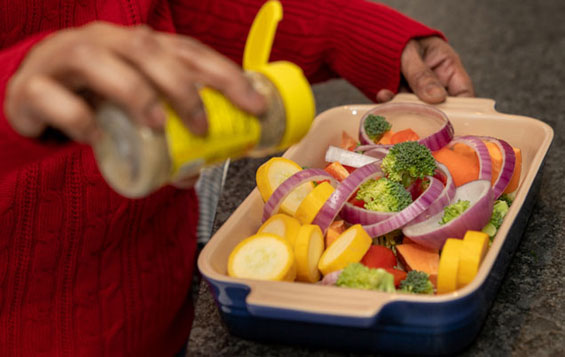
1. Choose foods that contain less salt and sodium
Why:
To help control blood pressure levels. In general, your diet should contain less than 2,300 milligrams of sodium a day.
How:
- Buy fresh food to cook. Sodium is added to many packaged foods you buy at the supermarket.
- Cook foods from scratch instead of eating prepared food. Frozen dinners, “fast” foods, and canned foods have a higher level of sodium.
- Instead of salt, use spices, herbs, and sodium-free seasonings.
- Check for sodium on the Nutrition Facts label of food packages. A Daily Value of 20 percent or more means the food is high in sodium.
- For those use to a convenience lifestyle, try lower-sodium versions of frozen dinners and other convenience foods.
- Always rinse canned vegetables, beans, meats, and fish with water before eating.
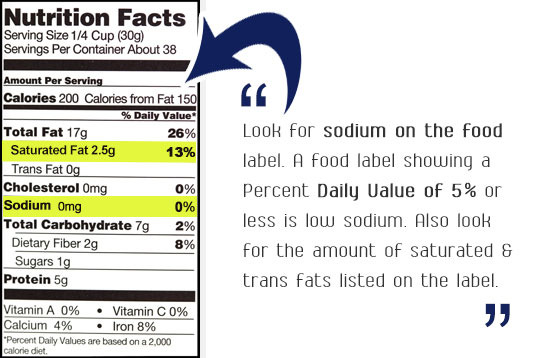
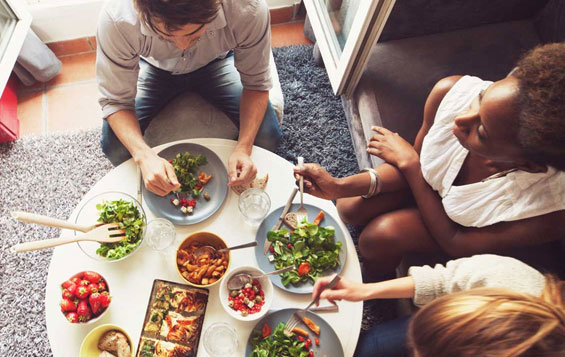
2. Eat the right amount and the right types of protein
Why:
To help protect your kidneys.
- Eat smaller portions of protein foods.
- Understand the different types of protein. Protein is found in foods from plants and animals.
Animal-protein foods:
- Chicken
- Fish
- Meat
- Eggs
- Dairy
Plant-protein foods:
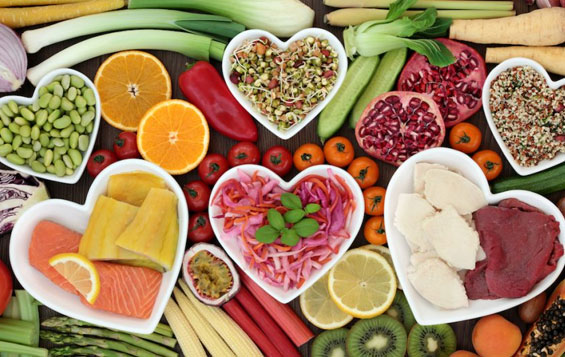
3. Choose foods that are healthy for your heart
Why:
To help keep fat from building up in your kidneys, blood vessels, and heart.
How:
- Instead of deep frying, grill, broil, bake, roast, or stir-fry foods.
- Instead of butter, cook with nonstick cooking spray or a small amount of olive oil.
- Trim fat from meat and remove skin from poultry before eating.
Heart-healthy foods:
- Lean cuts of meat, such as loin or round
- Poultry without the skin
- Fish
- Beans
- Vegetables
- Fruits
- Low-fat or fat-free milk, yogurt, and cheese
Limit Alcohol
- Drink alcohol in moderations to prevent damage to the liver, heart, and brain.
- Women: no more than one drink per day.
- Men: no more than two drinks per day.
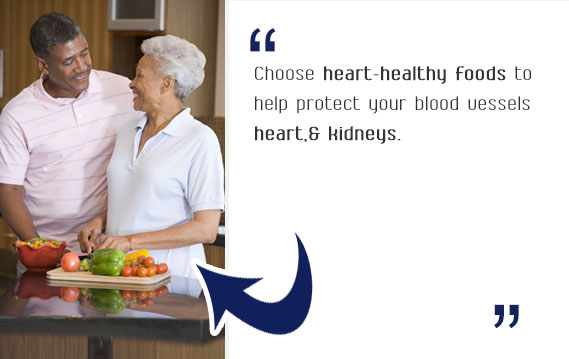
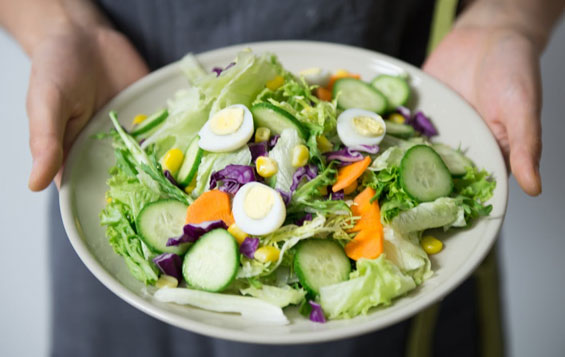
4. Choose foods and drinks with less phosphorus
Why:
To help protect your bones and blood vessels. In Chronic Kidney Disease, phosphorus can build up in your blood making your bones thin, weak, and more likely to break. High levels of phosphorus in your blood can also cause itchy skin, and bone and joint pain.
How:
- Many packaged foods have added phosphorus. Look for phosphorus—or for words with “PHOS”—on ingredient labels.
- Deli meats and some fresh meat and poultry can have added phosphorus. Ask the butcher to help you pick fresh meats without added phosphorus
Foods Lower in Phosphorus
- Fresh fruits and vegetables
- Breads, pasta, rice
- Rice milk (not enriched)
- Corn and rice cereals
- Light-colored sodas
Foods Higher in Phosphorus
- Meat, poultry, fish
- Bran cereals and oatmeal
- Dairy foods
- Beans, lentils, nuts
- Dark-colored sodas
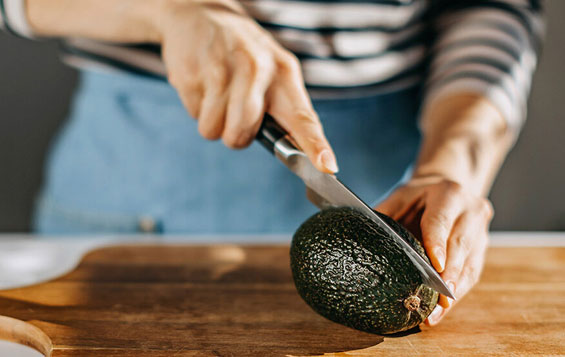
5. Choose foods with the right amount of potassium
Why:
To help your muscles move smoother. Damaged kidneys allow potassium to build up in your blood, which can cause serious heart problems.
How:
- Salt substitutes can be very high in potassium. Check with your provider about using salt substitutes.
- Drain canned fruits and vegetables before eating.
Foods Lower in Potassium
- Apples, peaches
- Carrots, green beans
- White bread and pasta
- White rice
- Rice milk (not enriched)
- Cooked rice and wheat cereals, grits
- Apple, grape, or cranberry juice
Foods Higher in Potassium
- Oranges, bananas, and orange juice
- Potatoes, tomatoes
- Brown and wild rice
- Bran cereals
- Dairy foods
- Whole-wheat bread and pasta
- Beans and nuts
Recipes






